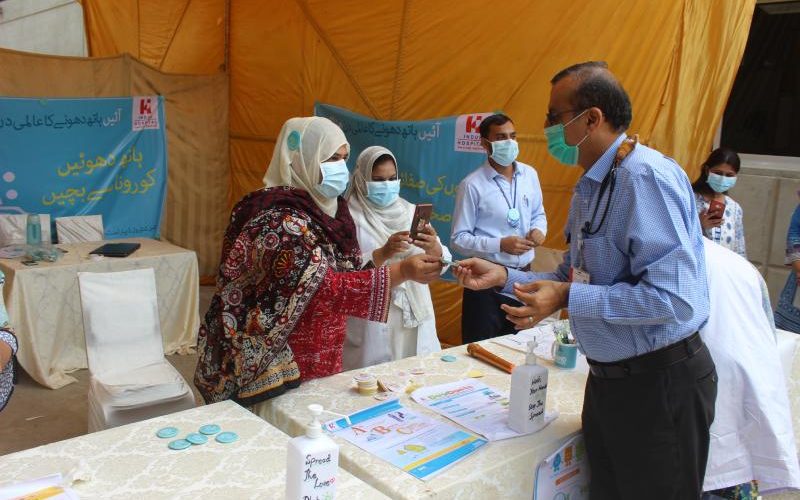COVID-19 HIGHLIGHTS THE CRUCIAL ROLE OF INFECTION PREVENTIONISTS – Arifa Khatoon
-
by
admin
“Healthcare professionals needed educating and then reeducating during the coronavirus pandemic, it was a hard time, a 24 hour a day job, which has now left us mentally exhausted. It is very important to work towards infection control in Pakistan, it requires small changes but essential resources.” Arifa Khatoon
Arifa Khatoon has 13 years of experience in infection control, with 10 years of association with The Indus Hospital. Currently, serving as the Manager of the Infection Control Department of The Indus Hospital, Arifa has been integral to the processes which were enacted after the COVID-19 pandemic struck Pakistan. She along with other managerial professionals were responsible for monitoring and educating healthcare workers who dealt with patients every day.
Being directly involved with healthcare workers, she was asked to provide trainings at all hours of the day, to all kinds of staff. Much of the time she dealt with the panic and anxieties that accompanied the risks of working with patients, providing a much-needed ear and counselling.
The Infection Control Department (ICD) provided some crucial services at both Indus Hospital (TIH) and Indus Health Network (IHN) level.
Guidelines and directives
For the prevention of COVID-19 transmission many guidelines were published. Institutional guidelines of PPE were developed according to the requirement of different departments. ICD also developed policies and Standard Operating Procedures (SOPs) based on the national Infection Prevention and Control (IPC) guidelines. The department trained healthcare staff.
Translating policy into practice
The management ensured the availability and proper use of PPE. A centralized counter was established to facilitate all clinical and non-clinical staff. To assess compliance to IPC guidelines infection control practitioners made regular visits to COVID unit and COVID ER.
Education and awareness
ICD provided COVID-19 prevention education to the staff, held Webinar sessions for all campuses. ICD also provided infection control education to the staff of some private and public hospitals and pharmaceutical companies.
Highlighting hand hygiene
ICD conducted hand hygiene sessions for all IHN staff. The department shared videos, messages, put up posters and provided hand washing stations, tissue towels, liquid soap. ICD also installed hand rubs at point of care, entrance of critical area, attendance machines, offices, schools, OPD etc.
Healthcare worker safety
As frontline fighters of COVID-19 battle, the healthcare workers were at risk of acquiring COVID infections not only from patients but also from their colleagues. ICD established a help desk for healthcare workers, provided helpline numbers and counselling for them and their families. Healthcare exposure policy was developed to support health issues of hospital staff.
COVID-19 has taught us how important infection prevention and control in hospitals is. It ensures the safety of patients and healthcare workers while simultaneously decreasing the risk of spreading infection in the community.
Pakistan needs to have a well-informed, knowledgeable, and well-equipped infection control program at every hospital, that can perform surveillance of infections, manage outbreaks like COVID-19 as well as developing policies that can meet local requirements.
A public-private partnership can be developed to collaborate in enhancing infection control education, compare the health care-associated infection rate, exchange the knowledge of resistance microbes and control outbreak effectively. Effective infection control practices will help in increasing the human safety and decrease the cost of treatment that will ultimately help government to spend money in any useful health project.
Arifa Khatoon has played an instrumental role in starting the Certificate in Hospital Infection Prevention and Control at IHN. The one-year certificate program prepares healthcare professionals to lead and implement a comprehensive infection prevention and control strategies in integrated healthcare facilities.





